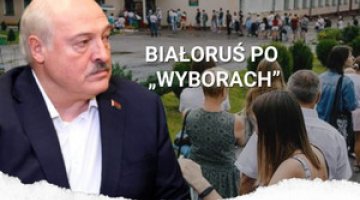Analyses
Belarus: eight years in prison for Andrzej Poczobut
On 8 February, a regional court in Hrodna sentenced Andrzej Poczobut, the journalist and deputy chairman of the Union of Poles in Belarus, to eight years’ imprisonment to a hard-labour penal colony. Poczobut had been charged with “calling for actions that threaten the national security of Belarus” and “inciting hostility and conflict”. He was arrested on 25 March 2021, along with other members of the Union’s leadership, and is the only one who has formally been tried: Maria Cieszkowska, Irena Biernacka and Anna Paniszewa, who were detained with him, were released from prison in 2021 and deported to Poland, while the Union’s president Angelika Borys has been under house arrest since last March.
Commentary
- The arrest, almost two-year detention and subsequent sentencing of Andrzej Poczobut to a long prison term are elements of Minsk’s anti-Polish policy. The harsh sentence is the journalist’s punishment for his steadfast stance and strong criticism of the regime. In his articles, he pointed out the anti-Polish nature of Alyaksandr Lukashenka’s policies, the numerous human rights violations in Belarus, and Minsk’s falsified, pro-Russian historical narrative. The verdict is another signal that the activities of Polish independent minority organisations will not be tolerated, and that Poland is seen as an enemy. This action should be interpreted not only in the context of the internal logic of the regime as it evolves ever further towards totalitarianism, but also more broadly as one of many recent demonstrations of Minsk’s clearly pro-Russian orientation.
- Since the rigged presidential elections in 2020, the Belarusian authorities have pursued an unequivocally anti-Polish policy. Since April 2021, the prosecutor’s office has been investigating the ‘genocide’ of the Belarusian people in 1941–1951: crimes allegedly committed by Polish partisans during and after World War II are central to these proceedings. Since last June, there have been acts of vandalism or outright destruction of Polish military burial sites and memorials, located mainly in the Hrodna region (at least 12 acts of vandalism have been reported to date). In addition, based on the provisions of the amended education law, the authorities have decided to withdraw Polish-language instruction in two Polish high schools in Hrodna and Vaukovysk as of the 2022/3 school year. This repression is also affecting Polish businesses, and holders of Polish Cards (a specific document available to citizens of post-Soviet countries of Polish origin) are treated with suspicion as potentially politically insecure elements.
- Lukashenko’s anti-Polish campaign is a reaction to Warsaw’s criticism of his government’s human rights violations and its use of brutal repression against its opponents, and to Poland’s continued lobbying for sanctions and support for the anti-regime opposition. In retaliation, Minsk’s propaganda accuses Poland of trying to destabilise Belarus and planning to reclaim the ‘eastern borderlands’ for itself. The hostile policy of the Belarusian government is multifaceted, affecting almost every sphere of bilateral relations. The regime’s goals are to eradicate Polishness from social life in Belarus and to create resentment among its citizens toward Poland and the Polish people.




